|
|||||||||||||||||
|---|---|---|---|---|---|---|---|---|---|---|---|---|---|---|---|---|---|
| MUSIC | MIXES | SIXX MIXX | INFO | PRESS | CHARTS | CONTACT | |||||||||||

Mr. Dan Snaith has made two previous appearances in my pointless yearly exercise in ranking others' musical art: #7 in 2007 for Andorra, a sunny, psychedelic ode to, well, cute girls, I guess; and #4 in 2010 for Swim, a stunning leap forward which grafted that organic psychedelia onto spacey, James Holden-esque techno. I was dumbfounded by his 2012 single as side project Daphni, "Yes I Know," (#16 on my songs list that year), a tremendously strange and groovy song that was both appealingly stripped down and rich with ideas, its soulful sample looping endlessly on top of a sci-fi bassline. With each release, he seemed to "hone in" more and more on a sort of musical purity, while aiming for grander themes each time. So now, he takes on love, and not just any love, Our Love, in an album whose ten track titles are audaciously straightforward: "All I Ever Need," "Your Love Will Set You Free," "Can't Do Without You." The music, as well, is the most straight-up house-y stuff he's ever done, confident enough to let each element have its own space: a single bass tone, a reverb-soaked clap. But less is absolutely more, as each song has both a sense of intimacy and majesty. I'll talk more about the two big singles in my song list below, but each song is expertly crafted. Vocal fragments reverberate, flange washes in and out, percussion snaps and percolates. "All I Ever Need" starts off feeling like it's going to be downtempo, and only a ways in does it settle on a 4/4 beat. The throbbing chords in "Second Chance" and "Julia Brightly" swerve out of tune like Kevin Sheilds on a whammy bar, and of course the majestic title track, which drops everything to reference Inner City's minor chords halfway through, is both ecstatic and delicate. While it often nods at dance music conventions, each element seems like it's been removed, reconsidered, and replaced, like someone taking apart a car to see how it works and then building some strange and wonderful new vehicle that has four wheels, sure, but they're made out of something... different. The lyrical and instrumental minimalism gives the songs room to explore the emotions they describe, and at the risk of over-analysis, there's a sense of heartbreak throughout even the most lovelorn songs here, and things don't seem to end well. Things start off infatuated and blissful, but the second-to-last song "Back Home" laments "where did it all go wrong," and the album's final track, "Your Love Will Set You Free," seems to indicate our singer ended the relationship which the rest of the album is a hymn to, and regrets it: "How hard it has been since I left you...In my dreams dear/You are here beside me." Gulp. It seemed at first like Our Love was a valentine, a love letter, but now I think it's a post-mortem: "This Was the Story of Our Love." Like all stories of love and loss, it's both completely personal and utterly universal.
For an old coot like me, nothing's more exciting that when I hear music for the first time and my first thought is "I have no idea what this is." I remember when I first heard Eurythmics "Sweet Dreams (Are Made Of This)"; I was in a grocery store, 12 years old, it came over the piped-in radio, and stopped me in my tracks. The sounds were so new and strange and wonderful, it was like seeing a new color for the first time. That's how I feel with LP1, an album whose sounds seem to exist at the nexus of the most exciting threads in music today: gothy darkwave, skittery experimental electronica, sultry R&B, Bjorky balladry. Indeed, the distorted full-face cover is reminiscent of Bjork's digitally-altered mug on Homogenic, and in fact it's probably Bjork who's the closest precedent for FKA twigs' wild sounds, although I don't think Bjork ever sang "I can fuck you better than her." But the music is unflinchingly progressive: barely music, in fact, at times; buzzing saws and clattering, stuttering bangs and dings, throbbing and bubbling and reverberating like in an empty cathedral. The fact that it's also, well, super sexy, is nothing short of miraculous.
The exact opposite of the soothing and pretty tuneage that makes up most of my year-end list (because I'm old), Run the Jewels 2 reminded me that loud can be good and that there are a lot of things to be angry about. The intensity is reminiscent of Public Enemy, but while Chuck D and crew were singularly political, El-P and Killer Mike don't spare anyone in their inventive and virtuoso tirades, engaging in lyrical braggadocio that's so complex and omnivorously referential it proves their own boasts as they're happening. Musically, where Public Enemy layered sample upon sample to create a cacophonous fury, El-P's production is targeted like a laser weapon: the jittering hoot sound in "Oh My Darling Don't Cry," perfectly out-of-tune with the throbbing bass and the stuttered vocal sample, creates an enormous tension; the constantly changing arpeggios in "Lie, Cheat, Steal," which give way to its caterwaling chorus that could be off a Bentley Rhythm Ace record. So, it's really not like Public Enemy at all, come to think of it, but it may be the most a hip hop record has grabbed me and shaken me up (and inspired me) since Fear of a Black Planet.
Looking back, I can't believe Todd Terje's "Inspector Norse" didn't end up higher than #19 on my 2012 "best songs" list. Even "Harlem Shake" came in at #12 for Pete's sake. Well, the rule is, I can't change the lists after December 31st of the given year, so these missteps must live on in infamy. But, really, "Norse" only grew in my estimation since then, its jaunty beat and cartoony melody belying its complex structure, and I still love it every time I hear it. I liked last year's "Strandbar" fine as well, its breezy vibe like the perfect beach party I probably would never get invited to. But I didn't realize Mr. Terje had an album in him, and an album full of such diversity, wit, and pure pleasure. Regarding wit, of course, there can't be a better album title, perhaps even a nod to the often foolish project of a singles-based dance act taking on a full-length album, and the lounge-act cover art only plays into the sense that the "serious album" venture is approached with a bit of a wink. And yes, silliness abounds, but in the same way that Air seemed to grab the cheesiest aspects of Morricone and the Carpenters and made it cool, Terje takes a kind of tropical kitsch to the extreme and makes it richly enjoyable. The majestic left-field downtempo cover of Robert Palmer's "Johnny and Mary" with Brian Ferry doesn't feel out of place at all, even though it's followed by a hyperspeed 7/8-time 60's game-show style freakout called "Alfonso Muskedunder." God I love this album!
The AV Club review of this album said it best: it's not as good as Sea Change, but even being in the neighborhood of that album is still pretty great. Sea Change was also an unbelievable omission on my 2002 album list (did I forget it?) but I've returned to its heartbroken beauty over and over since then as a salve for my own heartbreaks, and of course, for Beck to revisit the same musical territory (even if you announce it's a "companion piece") automatically invites comparisons. Morning Phase is, well, more adult, less dramatic, but lovely in its own way—"These are the words you use to say goodbye," is Raymond Carver-esque in its straightforward look at sadness, and "Wave"'s orchestral swell is reminiscent of Bjork. In a sense, it's the morning after Sea Change, still hurting but warmed a little by the light of dawn.
While critics seem to knock Little Dragon for not being exciting or original enough, I've always found what they do incredibly enjoyable, from the haunting 2006 ballad "Twice," to their more recent Prince-meets-SBTRKT minimal tech-funk. On Rubberband, they shake things up a little bit—rather than the pretty drawings of their previous album covers, this one features a stark photograph of a flying (falling?) girl and cartoonish typography. Lead singer Yukimi Nagano claims to have been obsessed with Janet Jackson during the recording process, and you can hear it in the sultry mid-tempo of "Pretty Girls," but tracks like "Paris" stomp ahead with the double-time Prince beat and intertwining melodic lines, and "Klapp Klapp"'s thunderous bass is pure 2014. Sure, it's Swedish, and kind of chilly, but some of us feel at home there.
In so many ways, 2014 has been Year of the Gay, as marriage equality storms across the country like a rainbow tsunami, and us queers are more integrated and open than ever. While "that's so gay" still lingers on as an insult, it's falling out of favor not only because of civil rights advances, but because the supposedly negative baggage associated with stereotypical gayness—big drama, self-consciousness, crazy fashion, etc—are kind of cool now. It's cool to be gay, and not just gay as in same-sex attraction, but gay as in, wearing a sequined gold tank top on your album cover. These days, artists from Le1f to Cazwell to Shamir make their "otherness" an asset, incorporated into their art in way that feels both natural and essential. Perfume Genius combines defiant exploding of stereotypes ("no family is safe when I sashay") with an epic musical backdrop that's unlike anything else, provided by Portishead's Adrian Utley. It's dark and synth-y at times, delicate and breathy at others. There's righteous anger here too, and while it's not exactly the gay Run the Jewels, it can be noisy and intense, but it's always captivating.
There was a lot of experimental/ambient stuff hitting the Best Of lists this year, but a lot of it seemed unnecessarily unpleasant to my ears, scary movie soundtrack-style spookfests. While Faith In Strangers has its dark moments, it's often stunningly beautiful; Stott's roots are clearly in the deepest of underground techno clubs, but he reaches for the stars. "Violence" moves between an alarm call and a meditative choir, and the title track recalls the Cure or the Cocteau Twins. It's exactingly crafted, ecstatic, epic, and as stately as the statue on its cover.
As my love for all things Dilla is well-documented, I was stunned when I first heard "It's Just (House of Dupree)" with a Dilla sample layered perfectly over a house beat. Why didn't I think of that? But honestly, I'm just glad someone did, and the soulful, energetic house music on the rest of this album (er, EP?) is just as satisfying as that track. From the propulsive Larry Heard-style liquid bassline of "Goodthing," to the rollicking thump of "Pier Children," to the airy "St. Sinclair," this is a rich and hypnotic listen, like if Air made house music.
I wouldn't say I'm morbid, exactly, but I will admit to a certain fascination with the Tibetan Book of the Dead, and its oddly specific timetable of visions of demons and deities that consciousness supposedly experiences after death. The goal is that study of what will be a new and scary experience can help with a better rebirth. On You're Dead! (love the exclamation point!), Flying Lotus not only engages in a meditation on the nature of death, he also creates a musical equivalent of the Book of the Dead. Rocketing from the most extreme jazz-fusion to thrilling, soulful hip hop, it's a strange and sometimes scary experience which, after a few listens, doesn't seem so scary any more. Honorable Mention: 
There's little that hasn't already been said about this soaring, magnificent song, atop most critics year-end best-tracks lists. I would only add a few things, first to elucidate a New Order connection, also a band of supremely awkward human beings who made transcendent pop music. I'm thinking "Regret," a two-chord slice of heaven that also features a totally incongruous video. "Seasons" has the same nostalgic tone, although "Regret" gets the girl ("you were a complete stranger, now you are mine"). I'd also like to point out the similarity of the synth chords here to Underworld's "Born Slippy," engendering the same mix of joy and melancholy. And, of course, wow, the Letterman performance: I'll take all of that you got.
"Can't Do Without You" is both a love letter and, in its endless repetition of the title, perhaps a cry for help. "Semantic satiation" is the term for when a repeated word suddenly becomes strange (try it with, like, "bread"), and since the four words in the title are the only lyrics, we get a lot of time to reexamine the phrase. For me it shifts from "Can't [Do Without] You" (as in, can't be away from you) to "Can't [Do] Without You," as in, I can't do, I can't act, I can't move, now that you aren't here. While its 4-minute run time is standard pop song length, nearly half of that is build-up, not even kicking in til 1:30, and still feels epic in scope. It's hard to believe that there are only four words here, since it seems to say so much, it's both gloriously infatuated and heartbreakingly wistful.
Responsible for two visual high points of the year, a toweringly great video and a jaw-dropping performance on the Tonight Show, there was a moment when it seemed like maybe this song would be an unexpected breakout hit a la "Royals." But to twigs' credit, it's just too weird, from its skittering hi hats and snare rolls, to its backwards chord sounds, and atop it all, her soaring, sensual voice. While I would totally have makeouts to this song (if there were any takers), it's also scary; cavernous and kind of angry, and what's she referring to when she says "I know it hurts"? From what I can tell, it's the brutal, fiery pain of longing.
Like YACHT, tUnE-yArDs appears to have a direct line to a childlike inner voice that allows for seemingly nonsensical chants and stream of consciousness declarations that somehow feel totally right, like, oh yeah, we're gonna get the water from your house, I know exactly what you're saying. The song's "Sesame Street" singalong nature was only affirmed by its raucous video (which is I guess more "Pee-Wee's Playhouse" than anything else, but still). I also get a sort of spiritual connection to Tom Tom Club's "Genius of Love," whose "fun, natural fun" rap would fit right in here. And that's exactly what this track is: the most natural of, uh, funs.
In naming Lil Wayne's "A Milli" my #2 track of 2008, I noted that its tension arises from the disharmony between the insistent, looping vocal sample and the sub bass, which are one note off from each other and never resolve. Run the Jewels does the same trick here, looping Zack de la Rocha's voice under the entire track until suddenly he appears in the flesh to spit a verse that's 1000x better than anything Rage Against the Machine ever did. Monumental.
I forget that not everybody just makes music these days by sitting in front of their laptop. But when i saw these Swedes on Letterman, I was reminded that they're a band, and even though they sound like Future Electro Robot Pop, they're playing it all, with their fingers and hands, live. It's a reminder that Little Dragon aren't just minimalists because it's easy, but on the contrary, because it's hard. "Klapp Klapp" uses its few valuable elements with stupendous effectiveness: the snappy drums, Nagano's soaring voice, and that big fat bass, which I'm all about.
While "Can't Do Without You" commits to the purity of its concept by restricting itself to the four words in the title, "Our Love" goes further, with only a wistful, sighed "aaahhh" for lyrics. But somehow, in its five and a half minutes, it goes to wonderful, amazing places. Building up a driving rhythm in its first two minutes, it seems to wind down with a wistful "wah wah" melody, but no, you have no idea what you're in for, suddenly it's dance party USA, with a whole new bassline and pounding 4/4 stomp. Then, 4 minutes in, we get Inner City chords, which slowly transform into a string section. I only hope I someday have a love worthy of this song. (And what a video)
While the stench of cynical, calculated Max Martin robo-pop wafts vaguely around Tove Lo (who's part of his stable of songwriters), and I'm not sure how different she is than any other manufactured starlet, "Habits" was a profoundly dark and strange song to grace our pop radio stations, and whether the emotion is real or not, the heartbreak sure comes off as authentic. It was only enhanced, proven of its mettle, by a couple amazing remixes, a more trap-leaning take from Hippie Sabotage, whose ingenious move was to loop the first line of the chorus, emphasizing the entrapment of addiction, and a stunning disco take from the briliant Oliver Nelson which gave the lyrics a whole new context.
While I resisted this song and its loopy chorus at first, it's easily the weirdest music on the radio right now, with its slippery organ chords and warbling bass. I hate to use the word "retarded," but this is retarded, in the sense of "let's get."
Oh wow, fast cars and palm trees and oceans and girls in bikinis and Miami Vice and pink sunsets and turquoise suits and how does this weirdo Norwegian know about all this stuff? Honorable Mention:
|
|
||||||||||||||||||||||||||||||||||||||||||||||||||||||||||||||||||||||||||||||||||||


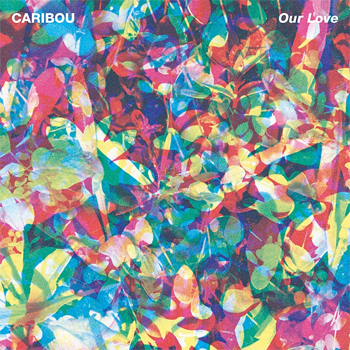



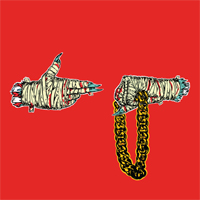



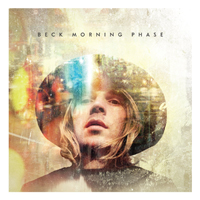

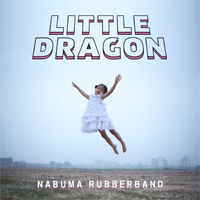

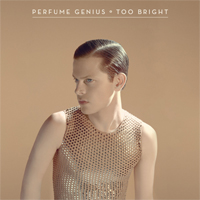

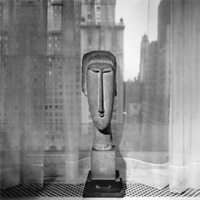





 1. Kanye West - Yeezus
1. Kanye West - Yeezus 1. Daft Punk - Get Lucky
1. Daft Punk - Get Lucky 1. Tame Impala - Lonerism
1. Tame Impala - Lonerism 1. Grimes - Oblivion
1. Grimes - Oblivion 1. PJ Harvey - Let England Shake
1. PJ Harvey - Let England Shake 1. Gil Scott Heron & Jamie xx - I'll Take Care of You
1. Gil Scott Heron & Jamie xx - I'll Take Care of You 1. KANYE WEST - My Beautiful Dark Twisted Fantasy
1. KANYE WEST - My Beautiful Dark Twisted Fantasy 1. LCD SOUNDSYSTEM - Dance Yrself Clean
1. LCD SOUNDSYSTEM - Dance Yrself Clean 1. ANIMAL COLLECTIVE – Merriweather Post Pavillion
1. ANIMAL COLLECTIVE – Merriweather Post Pavillion
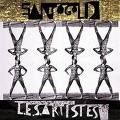
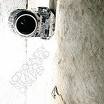 1. LCD SOUNDSYSTEM Sound of Silver
1. LCD SOUNDSYSTEM Sound of Silver 1. Rihanna – "Umbrella"
1. Rihanna – "Umbrella"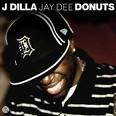 1. J DILLA Donuts
1. J DILLA Donuts 1. GNARLS BARKLEY "Crazy"
1. GNARLS BARKLEY "Crazy" 1. M.I.A. Arular
1. M.I.A. Arular 1. GORILLAZ "Feel Good Inc."
1. GORILLAZ "Feel Good Inc."
 1. FRANZ FERDINAND "Take Me Out"
1. FRANZ FERDINAND "Take Me Out"  1. THE WHITE STRIPES Elephant
1. THE WHITE STRIPES Elephant 1. OUTKAST "Hey Ya"
1. OUTKAST "Hey Ya" 1. THE STREETS Original Pirate Material
1. THE STREETS Original Pirate Material 1. THE WHITE STRIPES "Fell in Love with a Girl"
1. THE WHITE STRIPES "Fell in Love with a Girl" 1. Low Things We Lost in the Fire
1. Low Things We Lost in the Fire  1. Missy Elliott - Get Ur Freak On
1. Missy Elliott - Get Ur Freak On 1. GRANDADDY The Sophtware Slump
1. GRANDADDY The Sophtware Slump 1. Zombie Nation
1. Zombie Nation  1. The Magnetic Fields 69 Love Songs
1. The Magnetic Fields 69 Love Songs

